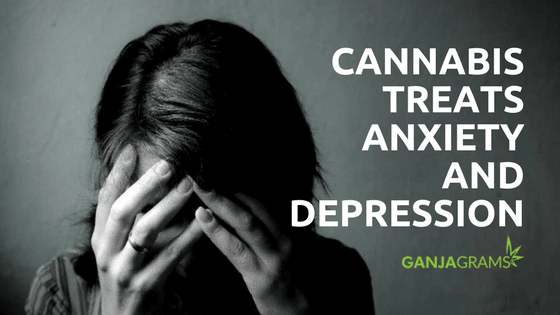This common mood disorder is the leading cause of disability worldwide. Yet many people who have depression do not get the help they need.
There are many treatments currently available, including oral medications and different therapies. Researchers are beginning to explore medicinal marijuana as an additional treatment. Here’s more about the use of medical marijuana for depression, its benefits, and its possible side effects.
Treatment to depression is unique to you and the severity of your case. It’s possible to successfully manage and treat mild, moderate, and severe depression. Psychological treatments such as behavioural or interpersonal psychotherapy are also a good first step for people who have moderate to severe depression.
Antidepressants are another tool some doctors use for more severe depression cases
Examples include selective serotonin re-uptake inhibitors and tricyclic antidepressants. Drugs can carry potential side effects and should only be used under a doctor’s supervision.
Antidepressants must be used with caution in children and teenagers with depression.
Like many uses of medical marijuana, treating mental health issues like anxiety and depression with cannabis has not received widespread attention from researchers because of the political issues surrounding cannabis. Anecdotal evidence suggests cannabis can provide benefits for sufferers of anxiety and depression.
However, legitimate studies remain few and far between. Like many uses of medical marijuana, treating mental health issues like anxiety and depression with cannabis has not received widespread attention from researchers because of the political issues surrounding cannabis.
Anecdotal evidence suggests cannabis can provide benefits for sufferers of anxiety and depression, but legitimate studies remain few and far between.
Cannabis Strains to Help Improve Your Mood
Strains high in the terpene limonene are typically great choices for mood elevation. Limonene has a sweet citrus smell, so try following your nose if your dispensary doesn’t offer chemical profiles.
Cannabis Strains to Combat Fatigue and Disinterest
Sativas have lighter, more energetic effects than Indicas, but be mindful of the fact that some sativa strains can induce anxiety. Strains rich in pinene can help promote focus, and this terpene is usually more concentrated in pine-scented strains.
Cannabis Strains to Help Curb Anxiety
THC is a common culprit of anxiety, so if you’re dealing with a high-THC strain, be sure to dose modestly. A relaxing Indica high in the flowery-scented terpene linalool may be a good solution to anxiety or try looking for a high-CBD strain.
Cannabis Strains to Help Address Appetite Loss
On the one hand, THC is an adept appetite stimulant, but can also exacerbate anxiety. Indica genetics tend to be the best choice here, but there are plenty of low-anxiety hybrids to choose from as well.
Cannabis Strains to Help Battle Insomnia
Indicas are the best combatant of insomnia, as they tend to be high in the sedating, musky-smelling terpene myrcene.
Marijuana has also been linked with other mental health conditions. If you’re at a high risk of psychosis, it’s important to know that marijuana may trigger schizophrenia or psychosis. Psychosis is a serious mental disorder characterised by a detachment from reality. Symptoms can include hallucinations and delusions.
The potential side effects of marijuana use may depend on the way you take it. Medical marijuana as treatment for depression can be taken as a spray, pill, or patches. Research is ongoing with traditional recreational methods, such as smoking or vaporising.[/vc_column_text][/vc_column][/vc_row]

